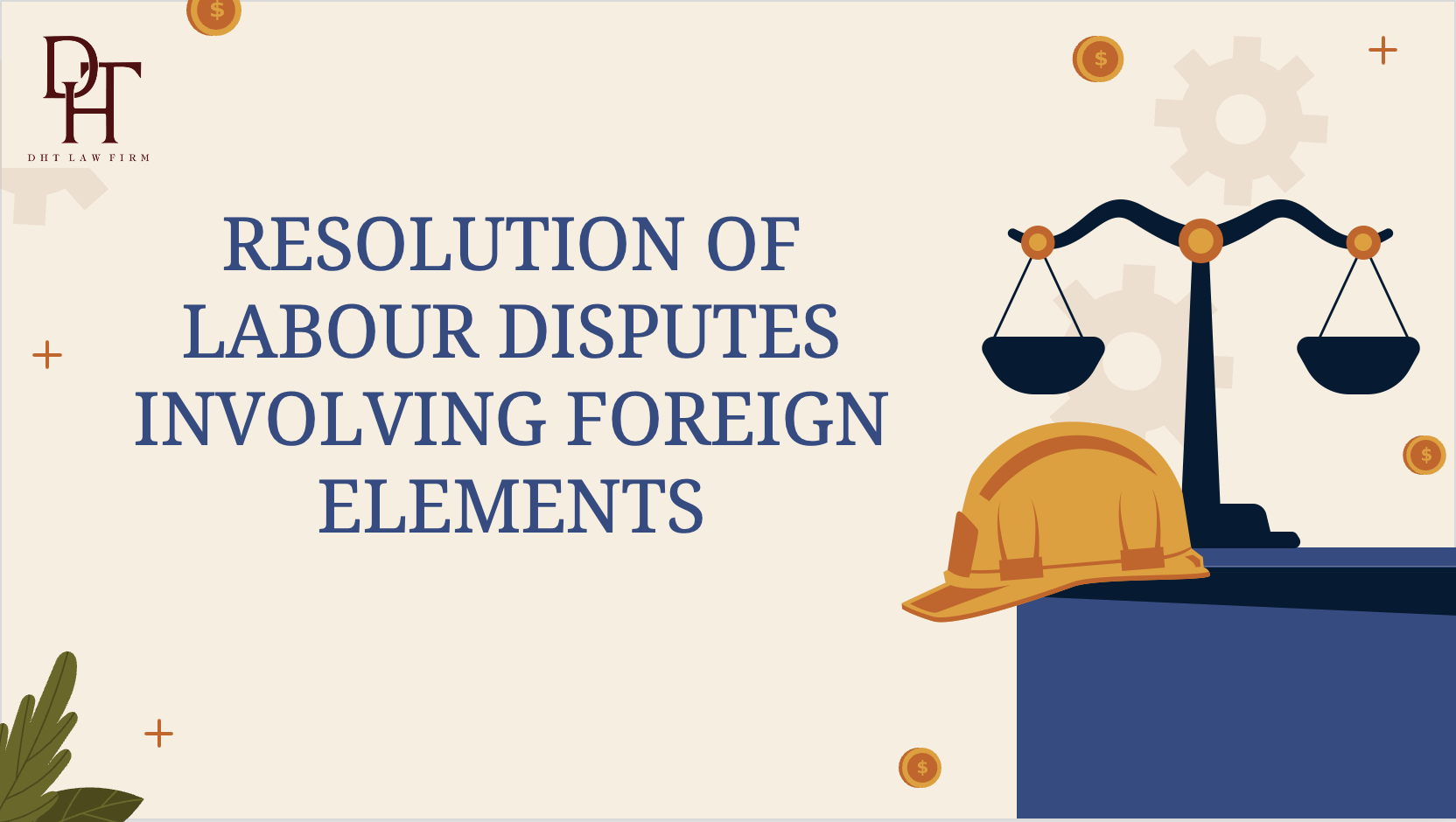
RESOLUTION OF LABOUR DISPUTES INVOLVING FOREIGN ELEMENTS ACCORDING TO VIETNAMESE LAWS
During the employment process, conflicts and disagreements may arise between employers and employees, leading to disputes. In particular, in the current era of integration, labour disputes will become more complicated with the participation of foreign entities.
Within this article, Dai Ha Thanh Law Firm would like to provide information on regulations on resolving labour disputes involving foreign elements according to Vietnamese labour law.
I. Overview about labour disputes involving foreign elements
1. Labour relations involving foreign elements
Labour relations means social relations arising during the hiring, employment and wage payment between employees, employers, organisations representing the parties and competent State agencies (Clause 5 Article 3 Labour Code 2019).
Civil relation involving foreign elements means any of the following civil relations:
a) There is at least one of the participating parties is a foreign natural person or juridical person;
b) The participating parties are Vietnamese natural persons or juridical persons but the establishment, amendment, implementation or termination of such relations arose in a foreign country;
c) The participating parties are Vietnamese natural persons or juridical persons but the objects of such civil relation are in a foreign country (Clause 2 Article 663 The Civil Code 2015)
Labour relations are one of the civil relations. Therefore, labour relations with foreign elements include:
Group 1: Foreign employees working in Vietnam for Vietnamese and foreign organisations and individuals.
Group 2: Vietnamese employees working for foreign organisations and individuals or international organisations in Vietnam.
Group 3: Vietnamese employees working abroad under contract.
2. Labour disputes involving foreign elements
Labour disputes mean disputes over rights, obligations or interests arising between the parties during the process of establishing, implementing or terminating labour relations, disputes between employees’ representative organisations, or disputes arising from relations directly related to labour relations (Clause 1 Article 179 Labour Code 2019)
Therefore, labour disputes involving foreign elements mean a conflict in rights, obligations and interests that arises between parties in a labour relations in which at least one party is a foreigner.
Labour disputes include:
Firstly, individual labour disputes between an employee and an employer, between an employee and an enterprise or organisation exports labour to foreign countries pursuant to contracts, or between outsourced employees and the sub-licensing employers (Point a Clause 1 Article 179 Labour Code 2019)
Secondly, collective labour disputes relevant to rights or interests between one or more employees’ representative organisations and employers; or one or more employers’ organisations (Point b Clause 1 Article 179 Labour Code 2019). This disputes that arise in the following cases:
(i) Right-based collective labour disputes mean disputes between one or more employees’ representative organisations and an employer or one or more employers’ organisations that arise in differences in the understanding and implementation of the regulations pursuant to labour law, collective labour agreements, internal regulations or other lawful regulations and agreements or when employers discriminate against employees or members of the committee of a employees’ representative organisations due to the establishment, joining or implementation of the employees’ representative organisation, intervene in or manipulate a employees’ representative organisation, or fail to comply with the obligation to negotiate in good faith (Clause 2 Article 179 Labour Code 2019).
(ii) Interest-based collective labour disputes include disputes that arise during collective bargaining processes or when either party rejects collective bargaining or does not implement bargaining within the limitation period stipulated by the law (Clause 3 Article 179 Labour Code 2019)
II. Resolution of labour disputes involving foreign elements
1. Methods of resolving labour disputes
|
|
|
|
|
|
|
|
|
|
|
|
|
|
|
|
|
|
|
|
|
|
|
|
Thus, for labour disputes involving foreign elements, the most optimal method of resolution is Arbitration. Because if the results of the negotiation and mediation depend on the will of the parties, the Court acts on the behalf of State authority to handle disputes. The Arbitration method is flexible according to the will and requirements of the parties, has the right to make a final decision on the case, requires the parties to comply with the judgement, and does not act on behalf of any State authority, which is consistent with the foreign element of the dispute.
2. Order and procedures for resolving labour disputes
a. Resolving individual labour disputes
|
|
|
|
|
|
|
|
|
|
|
|
|
|
|
|
|
|
|
|
|
|
|
|
|
|
|
|
|
|
b. Resolving collective labour disputes
Firstly, regarding right-based collective labour disputes.
|
|
|
|
|
|
|
|
|
|
|
|
|
|
|
|
|
|
|
|
|
|
|
|
|
|
|
Secondly, regarding interest-based collective labour disputes
|
|
|
|
|
|
|
|
|
|
|
|
|
|
|
|
|
|
|
|
|
Above is the entire general research of Dai Ha Thanh Law Firm on resolving labour disputes with foreign elements. If you have any questions or issues that need advice, please contact us to receive professional legal advice services.
